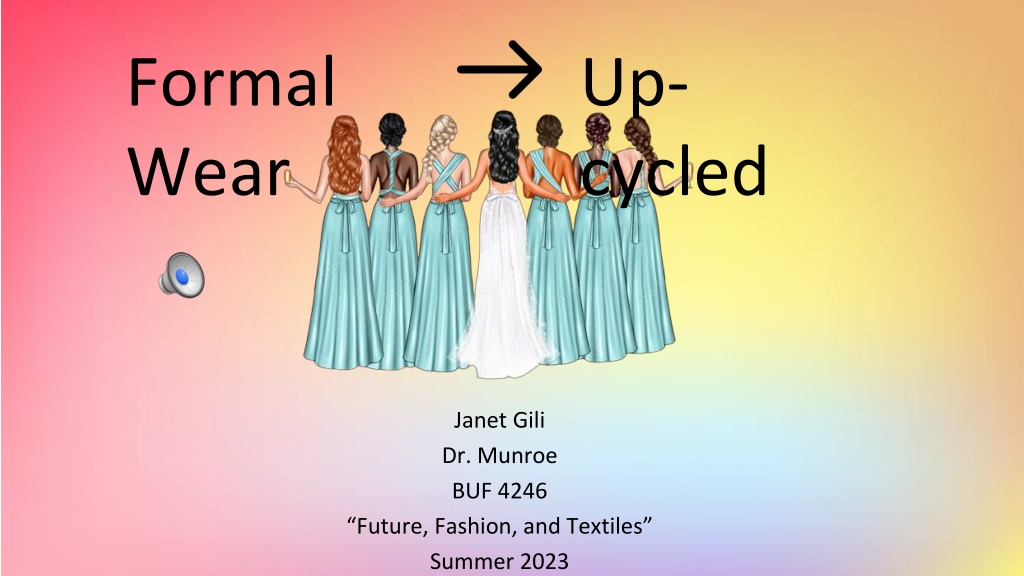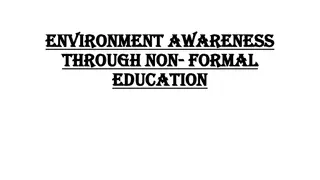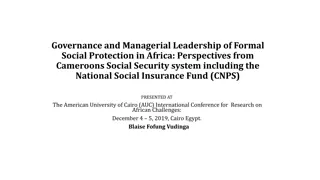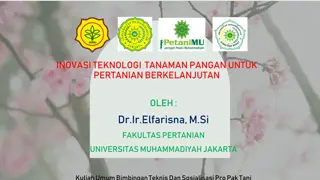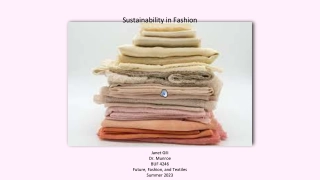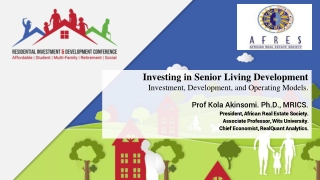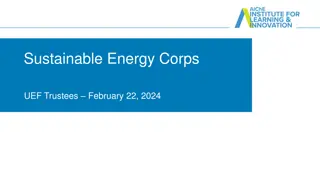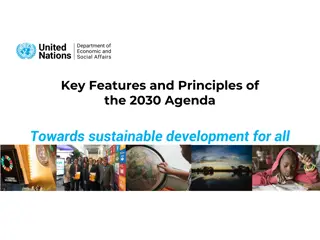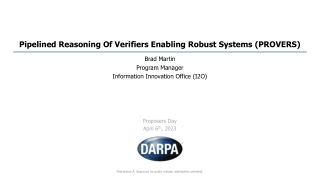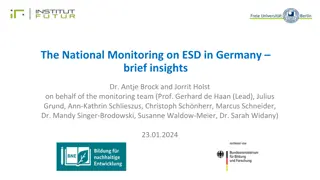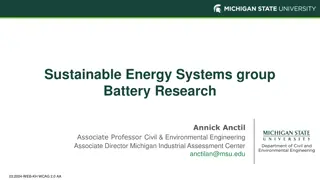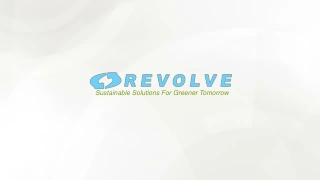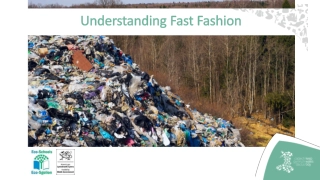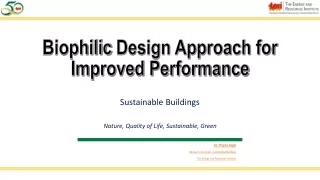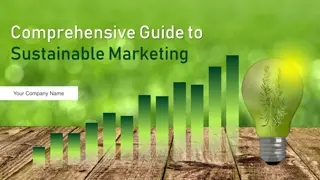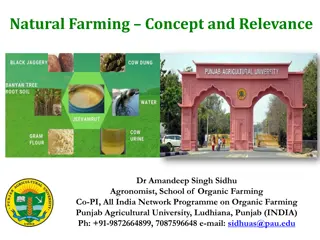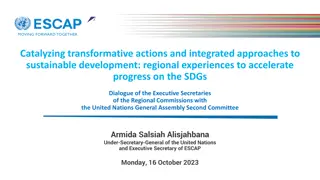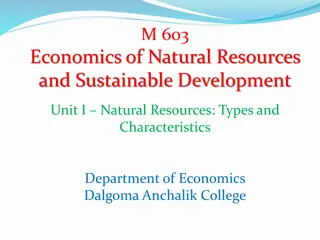Sustainable Fashion Solutions for Repurposing Formal Wear
Transforming formal wear from single-use items into sustainable fashion solutions is vital for reducing textile waste and environmental impact. This article explores the challenges of post-party formal dresses, the environmental consequences of textile waste, and innovative approaches to upcycling dresses for continuous use, focusing on home textiles and sustainable initiatives like Formal Wear Up-Cycled. Additionally, it discusses the strengths, weaknesses, opportunities, and threats in the sustainable fashion industry, targeting a demographic of individuals aged 30-60 with higher education and a global geographic location. Lastly, it highlights the importance of direct-to-consumer models, reduced carbon footprints, resource efficiency, supply chain transparency, and circular economy practices in driving sustainable fashion forward.
Download Presentation
Please find below an Image/Link to download the presentation.
The content on the website is provided AS IS for your information and personal use only. It may not be sold, licensed, or shared on other websites without obtaining consent from the author. Download presentation by click this link. If you encounter any issues during the download, it is possible that the publisher has removed the file from their server.
Presentation Transcript
Formal Wear Up- cycled Janet Gili Dr. Munroe BUF 4246 Future, Fashion, and Textiles Summer 2023
What does one do with a formal dress once the party is over? Put into the back of a closet Sold (if designer or more expensive) Passed down to a friend or family member Thrifted/Donated Thrown away In 2018, the global wedding wear market was valued at 58.4 billion USD, projected to grow by 6.8% in the global wedding dress market by 2026. Unfortunately, the reality is that most wedding outfits are typically worn only once, leading to significant un-sustainability. (Admin, 2023).
17% to 20% of the worlds water pollution is caused by the textile dyeing process (Lara et al., 2022) 10% of global greenhouse gas emissions are caused by the textile industry (Lara et al., 2022) 85% of textiles thrown away in the U.S. are dumped into landfills or burned including unused textiles ( The Fashion Industry Waste Is Drastically Contributing to Climate Change, 2021) (Lara et al., 2022)
How can we use these dresses to make something new and continuous? HOME TEXTILES
Strengths: Sustainability Unique Value Proposition Diverse Product Range Differentiated Positioning Weaknesses: Limited source of material Design & Style Limitations Opportunities: Threats: Growing Demand for Sustainable Products Collaborations & Partnerships Competition Consumer Perception & Education
Top Competitors Unbox the Dress (S, n.d.) Recycled Bridal Boutique (Recycle Bridal Boutique - Dress & Attire - Danville, CA - WeddingWire, 2021) How does Formal Wear Up-Cycled fill the Fashion Gap? Extensive Product Range Continuous Product Use Focused on Slowing Fast Fashion Diverse Sustainability Initiatives
Age 30- 60 Income Level $60,000- $120,000 Gender Female/Male Demographics Higher Geographic Location Global Education Level (Kristensen, 2023) Working Class
Direct - to -Consumer Reduced Carbon Footprint Efficient Resource Utilization Transparency in Supply Chain Circular Economy Approach Education and Conscious Consumerism (Journal, n.d.)
Wayfair Pottery Barn Price Point Comparison Floral Apron $49.99 Floral Apron $79.99 Formal Wear Up-cycled Apron $27.99 Throw Pillow Cover Set $39.99 Curtain Pair $ 69.99 VS Cheetah Throw Pillow Cover $49.50 Anelis Throw Pillow Cover $69.99 Shimmer Tulle Curtain Pair $139.99 Polyester- Semi-Sheer Curtain Pair $129.99 (Wayfair, n.d.) (Pottery Barn, n.d.)
If Formal Wear Up-cycled goes viral, how do we scale up? Refined Prototyping Supply Chain Management Production Scaling Workforce and Training Technology Implementation Marketing and Branding Quality Assurance and Customer Service Logistics and Distribution (Campbell, n.d.)
Will Formal Wear Up-cycled be able to sustain fair trade principles and still make a profit? Collaboration & Partnership Supplier Relationships Educating Consumers Transparent Supply Chain Fair Wages & Working Conditions
Together, we can make a lasting impact and create a more sustainable future.
References Admin. (2023, February 14). How to Recycle Bridesmaid Dresses - Updated Guide. Recycling Revolution. https://recycling- revolution.com/how-to-recycle-bridesmaid-dresses.html The Fashion Industry Waste Is Drastically Contributing To Climate Change. (2021, March 10). CALPIRG. https://pirg.org/california/articles/the-fashion-industry-waste-is-drastically-contributing-to-climate-change/ S, L. (n.d.). Unbox the Dress | Bridal Salons. theknot.com. https://www.theknot.com/marketplace/unbox-the-dress-winstonsalem-nc- 1045686#:~:text=About%20This%20Vendor&text=Unbox%20the%20Dress%20is%20a,loved%20for%20years%20to%20come. Recycle Bridal Boutique - Dress & Attire - Danville, CA - WeddingWire. (2021, September 3). WeddingWire. https://www.weddingwire.com/biz/recycle-bridal- boutique/4a73c8c2ba17804e.html#:~:text=A%20wedding%20dress%20boutique%20specializing,of%20choosing%20their%20dream
References (Continued) Journal, S. B. (n.d.). Sustainability in DTC Retail: How Direct-to-Consumer Brands are Impacting the Environment in 2023. www.linkedin.com. https://www.linkedin.com/pulse/sustainability #:~:text=DTC%20brands%20are%20placing%20a,sustainable%20farming%20and%20manufacturing%20practices. Kristensen, E. (2023, March 22). 7 DTC Marketing Strategies to Skyrocket Customer Loyalty. Drip. https://www.drip.com/blog/dtc-marketing-strategies Wayfair. (n.d.). Wayfair.com - Online Home Store for Furniture, Decor, Outdoors & More. https://www.wayfair.com/ Pottery Barn. (n.d.). Home Furniture, Home Decor & Outdoor Furniture | Pottery Barn. https://www.potterybarn.com/ Campbell, A. (n.d.). How to Scale a Business. SCORE. https://www.score.org/resource/blog-post/how-scale-a-business Lara, L. M., Cabral, I., & Cunha, J. (2022). Ecological Approaches to Textile Dyeing: A Review. Sustainability, 14(14), 8353. https://doi.org/10.3390/su14148353
